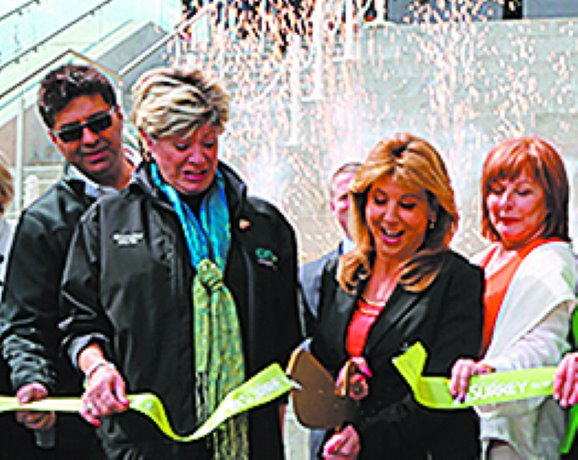A B.C. electrical contractor has filed suit against the City of Surrey, alleging the municipality won’t pay the millions of dollars alledgedly owed for work done on a project.
The company says the case highlights an issue that is widespread in the subcontracting community.
"I’m not looking for sympathy, I am just standing up for all the people who won’t do this or who are afraid to do it," said Ron Fettback, vice president of Western Pacific Enterprises (WPE).
He’s spent 37 years in the industry and said he often sees the financial risk of projects dumped on subcontractors.
Western Pacific Enterprises is suing the city as well as PCL, the general contractor on the project.
According to court documents, Western Pacific Enterprises subcontracted with PCL to do electrical work on the $97 million Surrey Civic Centre.
However, multiple unanticipated changes to the scope of work ended up taking 30 months rather than the 19 WPE had anticipated with the original scope.
He also claims that the city asked WPE to do some preparation work on the city hall site so that a mayoral charity gala could take place there in October 2013.
WPE was pressed to have certain building areas appear finished, putting a strain on manpower and costing an additional $90,000 that Fettback said the city hasn’t paid.
Fettback said in all he is owed $6 million.
"At the end the day, they don’t want to pay it. It’s an abuse of the system," he said.
Fettback said the traditional "pay when paid" clauses, which typically mandate that the higher-tier contractor will pay a lower tier contractor within a certain number of days after the higher-tier contractor has received payment, are bad for the industry.
He said timelines need to be put in place so that if an agreement can’t be reached, the issue goes to a mediator.
When subcontractors have to go to the courts, it could take many months, even years for a resolution.
Fettback said he knows of many other subcontractors, who also feel abused but are not ready to risk filing a lawsuit.
"All they are doing is pushing off their problem to other people, I am not a bank, I am a businessman," Fettback said.
"When does the abuse stop? Somebody has to stand up."
PCL declined to comment.
Earlier this year, many were hopeful the first prompt payment legislation to protect subcontractors and contractors could be passed.
The Prompt Payment Act, 2013 or Bill 69 was originally introduced in the Ontario legislature by MPP Steven Del Duca on May 13, 2013.
It was moved to second reading and debate on May 16. Bill 69 was referred to the Standing Committee on Regulations and Private Bills, which voted to set the bill aside on April 2.
Private and public owners across Ontario raised concerns that Bill 69’s payment timelines, progress payment provisions and lack of recognition for payments tied to construction milestones would have created difficulties.
Following the election, the bill was essentially dead.
Many organizations are supportive of prompt payment legislation and continue to push for it, including Mechanical Contractors Association of Canada, Council of Ontario Construction Associations and Council of Construction Trade Associations – B.C.
Manley McLachlan, B.C. Construction Association president, has previously spoken about the issue of prompt payment.
He said the issue, while complex, is integral to improving the industry as it affects businesses large and small.
He said the BCCA will participate in the dialogue surrounding prompt payment legislation in B.C. and will use its government channels to advance the issue.
"From the BCCA board’s perspective, this is one of our priority issues and it’s fundamental to business operations in the construction industry," he said.












Recent Comments
comments for this post are closed